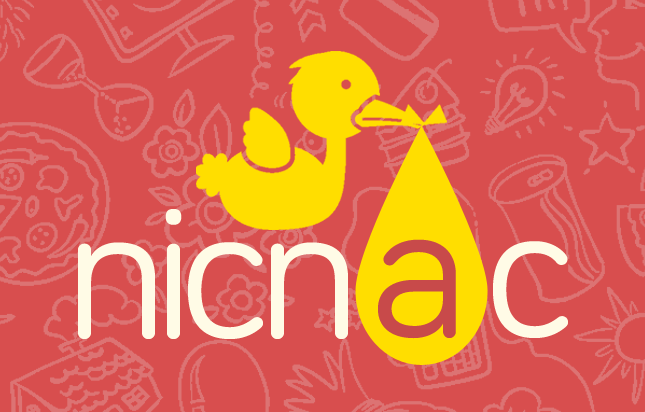
With various online payment platforms and the likes venturing into Sri Lanka, and even some homegrown payment solutions hitting the scene, we at Roar feel quite confident in assuming that Sri Lanka is moving into a new era where digital trading is concerned.
But where exactly do startups fit into this picture? Well, April’s startup bundle features two such new kids on the block: TradeHuts, a web portal which is best described as a Sri Lankan take on eBay, and NicNac, a goods delivery service with a ‘be-Lankan, buy-Lankan’ twist. There’s also a cool new startup catering to the students of our country going by the name of Gurupaara (the name might hold some nostalgic connotations if you grew up in SL).
And in other startup news ‒ JFDIx Sri Lanka is finally here. In case you didn’t know, it’s the Sri Lankan portal to JFDI Asia, otherwise known in the startup and tech circles as Joyful Frog Digital Innovation, a community of entrepreneurs, investors, and innovators helping people in the region materialise businesses out of ideas. This is definitely good news for the Sri Lankan Startup community, as regional ventures like JFDIx will play a big role in further building/improving the local startup eco-system.

The frog has landed. Image credit: yourtstory.com
They might have gotten a bit carried away with the whole Frog theme though, because if you look at their About page, JFDI does not have a CEO. Instead they have a CEF ‒ you probably guessed it already, but if you didn’t, it’s a Chief Executive Frog.
There’s also a company mascot which goes by the name of Smoochy ‒ why does this bring up images of a princess kissing a frog? But enough about amphibians and fairy tales ‒ let’s dive right into April’s most prominent startups.
NicNac

NicNac- Anything on demand. Image credit: NicNac/Facebook
There are already some established players in the local scene when it comes to both deliveries and concierge services, so is there enough space in the local scope for even more contenders? NicNac sure thinks so, and what they do could be described on a very basic level as a cross between something like Quickee or Speedee, and FreeMyTime.
The user interface to their app seems simple and friendly enough ‒ although right now, the app is only available for iOS. NicNac really seems to be aiming to set the bar high when it comes to customer interactions and satisfaction: going through their Facebook feed, we noticed a couple of instances where the founder himself would offer advice/how-tos to users experiencing problems with the app.
How it works, is you run the app, place an order for the items you want (word on the grapevine is that they may even deliver booze ‒ something yours truly is very thrilled about), and then wait for the guy to show up with the goods. The ordering is done through a rather interesting UI ‒ with clear cartoonish-diagram style drawings and details.
A rather interesting feature about NicNac lies in how it will prioritise local boutique shops and the likes when sourcing goods for your order, instead of going for a generic big-box store (unless if you specifically instruct them to do so). This in itself we feel is an initiative worth special mention because in doing so, NicNac is also helping promote small-scale local businesses. NicNac operations are currently limited to Colombo. But the last we heard, in the two weeks it has been up and running, NicNac had already completed more than 1,000 tasks with approximately 5,000 users on iOS and transactions worth LKR 100,000.
NicNac is developed by Erbenlab, the same people who brought you the controversial TukTuk app a few months back.
Gurupaara

Gurupaara has big plans for the A/L students and teachers of Sri Lanka. Image credit: Gurupaara/Facebook
A platform that came into being earlier this year, January 9 to be precise, Gurupaara is a super cool initiative which aims to revolutionise the existing empire of tuition classes. How do they plan to go about doing this? The mission statement of their portal says it best: “We want to provide unbiased options for students and parents in selecting the best Advanced Level teachers of their choice.”
True, it sounds somewhat ambitious ‒ but based on the feedback they’ve been receiving, and the sheer numbers of users that have flocked to their services since inception, Gurupaara sure seems to have hit the sweet spot when it comes to disrupting an existing system. Not only do students get real-time updates on the teachers/lecturers that they follow, there’s even alerts on class cancellations and delays.
Although they do not have an app per-se to access the services, Gurupaara does utilise existing (and popular) means of technology to make their services accessible to the end user. Examples? They make use of SMS, email, and even Whatsapp to deliver notices, reminders, and various alerts on lectures and/or lecturers selected by the user.
For ease of access, Gurupaara has multiple categories to select and filter the exact information that you might be after. The first layer is location, which takes you to various institutions in said location ‒ then Stream, Subject, Language medium, and Class options (Individual/Group/Mass).
We at Roar are definitely curious to see what else the fine folks at Gurupaara will come up with, and how the initial service will grow/expand and evolve.
TradeHuts

The first online marketplace in Sri Lanka that allows bidding. Image credit: Tradehuts/Facebook
As it is, there’s a multitude of platforms in Sri Lanka which are all about allowing their users to buy and sell items ‒ so what exactly is TradeHuts, and how does it differ from other platforms of its kind? According to Dinal Gooneratne, the man behind the scenes, “TradeHuts is a community-based platform that provides a revolutionary new way to bid, buy, and sell, made by Sri Lankans for Sri Lankans.”
Sure, there are existing services such as Ikman and Kaymu, all of which are about buying both brand new and used items ‒ be it directly from a vendor or a first-hand user. But it seems TradeHuts has added an interesting spin to the existing system, allowing the users to bid ‒ which in turn lets buyers pursue bargain prices on their purchases, while sellers get to select the best offer out of a bunch of bids.
There are two main ways to make a sale on TradeHuts: auction sales, and classified sales. And for buyers, an auction sale has two options ‒ ‘bid’ or ‘buy now.’ If you choose to bid, your bid will compete against other bids in the system and once the set seven days are up, the seller gets to pick the best offer out of the lot. ‘Buy now’ on the other hand closes bidding immediately, and registers the item as sold.
A classified sale on the other hand, according to Dinal, is “for sales of motor vehicles. As users would need to examine the vehicle before purchasing, a functionality is provided here to message the seller, as well as provide the seller’s contact details so a vehicle inspection can be arranged. The classified listings have a timeframe of 14 days, after which the classified expires. Within this timeframe if one of the interested parties decides to purchase the vehicle, this transaction again will take place out of TradeHuts.”
TradeHuts also has a membership system which allows a potential buyer or seller to get a general gauge on who they are dealing with, and flush out scam artists.
As unique as the business model may be, TradeHuts is not alone on the playing field. “Our biggest competitors would be Ikman or Kaymu, but not Takas or Kapruka. Ikman and Kaymu also provide a platform for buyers and sellers, but we differ quite a lot from them. Most of our competitors provide online classifieds… none provide online auctions. Our model is more similar to eBay than online classified sites such as Ikman,” said Dinal.
TradeHuts also features a rather interesting feature which goes by the name of ‘online wallet’ ‒ and although it sounds like something you could use when purchasing items on the platform, it isn’t. Dinal explained that,“when you create an auction or a classified as a seller, you have the option to add extras such as “Star Listings,” which means your listing is featured on the home page or “Bold Listing,” which means your listing title is highlighted in bold. You can then use the credits in your online wallet to add these extras onto a listing you created as a seller.”
The wallet can be reloaded via bank deposits or the IPG they have set up with HNB. TradeHuts is also working on directly integrating Stripe into the payment system once the service launches in Sri Lanka.
What initially started out as a team of four people including Dinal, now has four more people in their ranks, looking into business development, marketing, and social media management.
What kind of startups would you like to see featured in our monthly bundles? Do you know of any that are involved in super cool initiatives? Drop us a line at [email protected], and let us know.
Cover image credit: betanews.com








